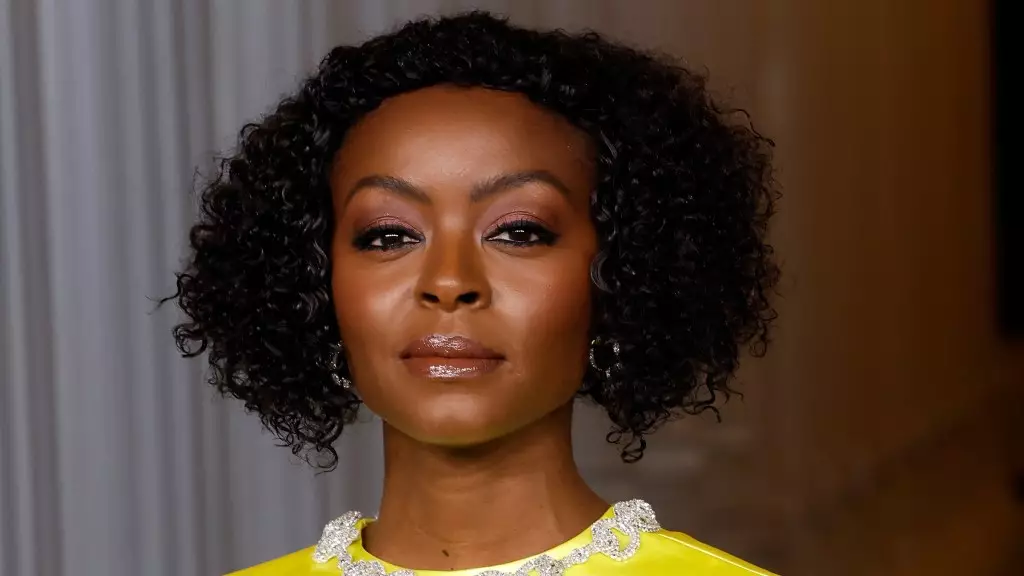Danielle Deadwyler, an actress known for her compelling performances, particularly in the film “Till,” recently shared her evolving perspective on awards such as the Academy Awards, especially as she finds herself in the spotlight again with the upcoming film, “The Piano Lesson.” In a candid interview with the Los Angeles Times, Deadwyler articulated a newfound sense of relaxation regarding awards—one that prioritizes communal experiences over individual accolades. This insight reveals a broader conversation about the nature of recognition in the film industry and how it intersects with the experiences of Black artists.
Deadwyler emphasized the importance of focusing on the collective rather than the competitive aspect of the awards season. She articulated, “I’ve always known what has always been most valuable, which is people, what is going on with people, what is going on with culture.” This acknowledgment of the ensemble’s significance shifts the lens from personal achievement to a celebration of shared creativity and cultural expression. Such a perspective is crucial in an industry often plagued by intense competition and exclusivity, particularly affecting underrepresented voices.
The actress’ reflections arise from a complex backdrop of race, gender, and recognition within the entertainment industry. In 2022, Deadwyler was at the center of a controversy that highlighted the disparities faced by Black women in the film community. The conversation around her own snub during the awards season brought to light the challenges that Black creatives, such as director Gina Prince-Bythewood and actress Viola Davis, have faced in securing acknowledgment for their work.
Deadwyler remarked, “Controversy always surrounds Blackness,” underscoring the intricate dynamics that govern recognition in Hollywood. She pointed out an incident in which the surprise nomination of Andrea Riseborough overshadowed her potential nod, emphasizing how narratives surrounding Black artists are often underestimated or overshadowed. This not only illuminates the barriers Black women confront but also encourages a reevaluation of how recognition is articulated and who it is extended to within the industry.
The actress argued for deeper introspection concerning the space granted to artists of color. According to her, the ongoing conversations about equity in recognition necessitate confronting uncomfortable truths about biases that influence whom we celebrate in the arts. “We have to begin to question ourselves truly if we want a space to have any form of equity,” she stated, suggesting that the responsibility for creating change extends beyond producers and awards committees to the audiences and advocates of inclusion.
As Deadwyler navigates the release of “The Piano Lesson,” it is important to note the cultural significance of the film itself. Adapted from August Wilson’s Pulitzer Prize-winning play, this film is positioned within the broader context of Wilson’s Century Cycle, which explores different facets of the Black experience throughout the 20th century. Directed by Malcolm Washington, “The Piano Lesson” tells the story of siblings Berniece and Boy Willie as they grapple with conflicting views on selling a family heirloom—a piano that embodies their heritage and familial legacy.
The film’s narrative tackles deep-seated issues of identity and family heritage while engaging audiences in critical discussions about what it means to honor one’s roots. By prioritizing this cultural dialogue, both Deadwyler and the film diverge from the singular pursuit of accolades, instead calling attention to the importance of storytelling rooted in Black experiences. It challenges viewers to reflect on their own understandings of legacy and recognition.
A New Era of Understanding
Ultimately, Deadwyler’s insights urge a shift in how we define success in the film industry. By fostering a collective understanding and appreciation for artistic contributions, particularly from marginalized groups, a more inclusive narrative can emerge. Her thoughts suggest that it is high time for industry standards to evolve, allowing for greater equity not only in recognition but also in the types of stories being told.
As audiences anticipate the release of “The Piano Lesson” on Netflix, there lies an opportunity to engage profoundly with the content and the conversation it incites, affirming that while awards may matter, the culture and connections we foster through storytelling will outlast any trophy. Deadwyler’s approach serves as a reminder that the essence of art is not defined solely by accolades but by the impact it has on individuals and communities, reshaping narratives in meaningful ways.


Leave a Reply